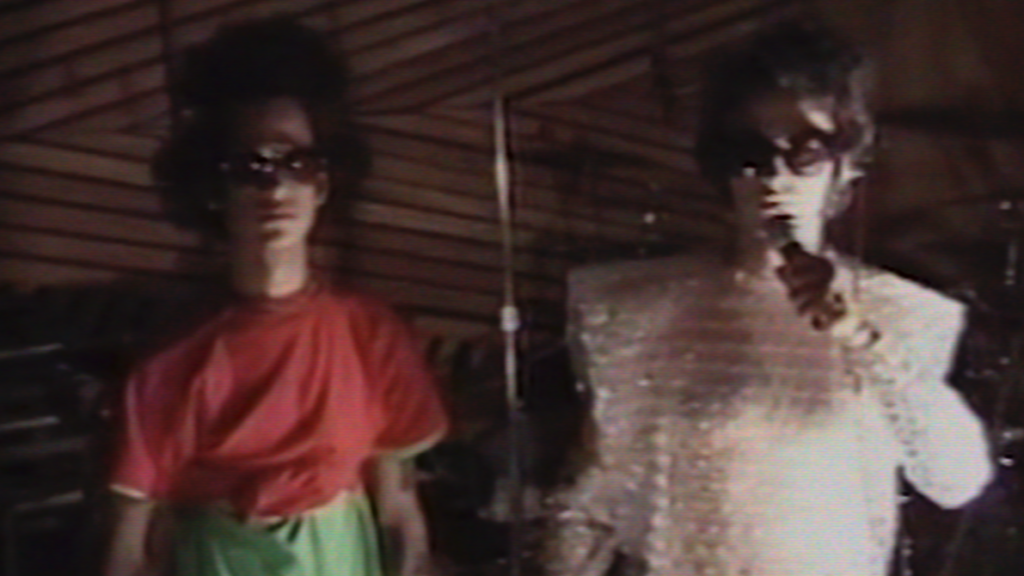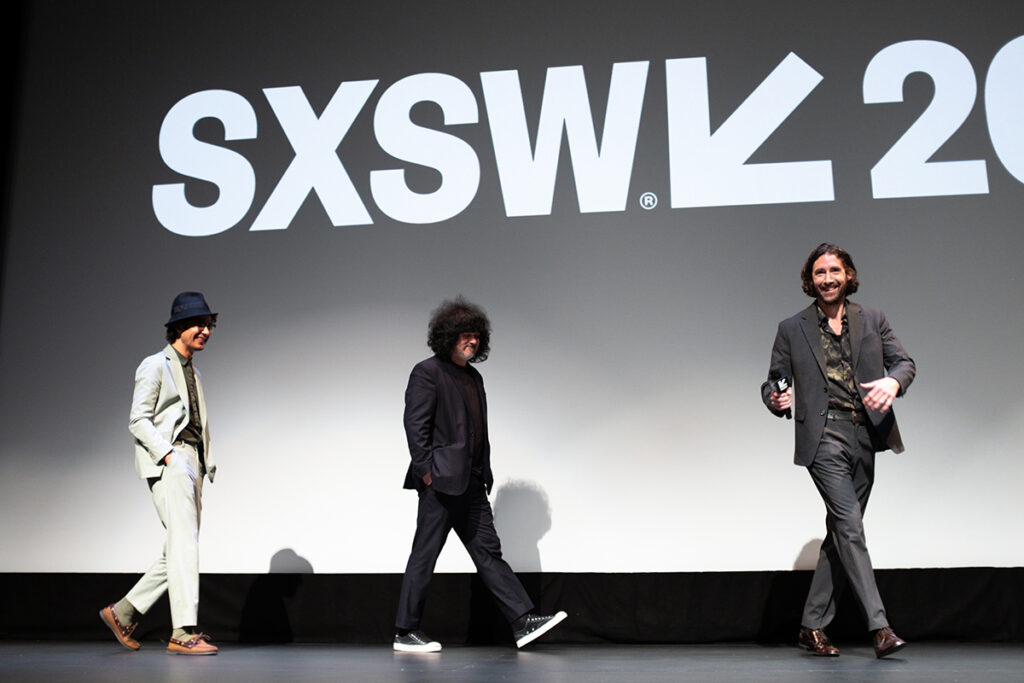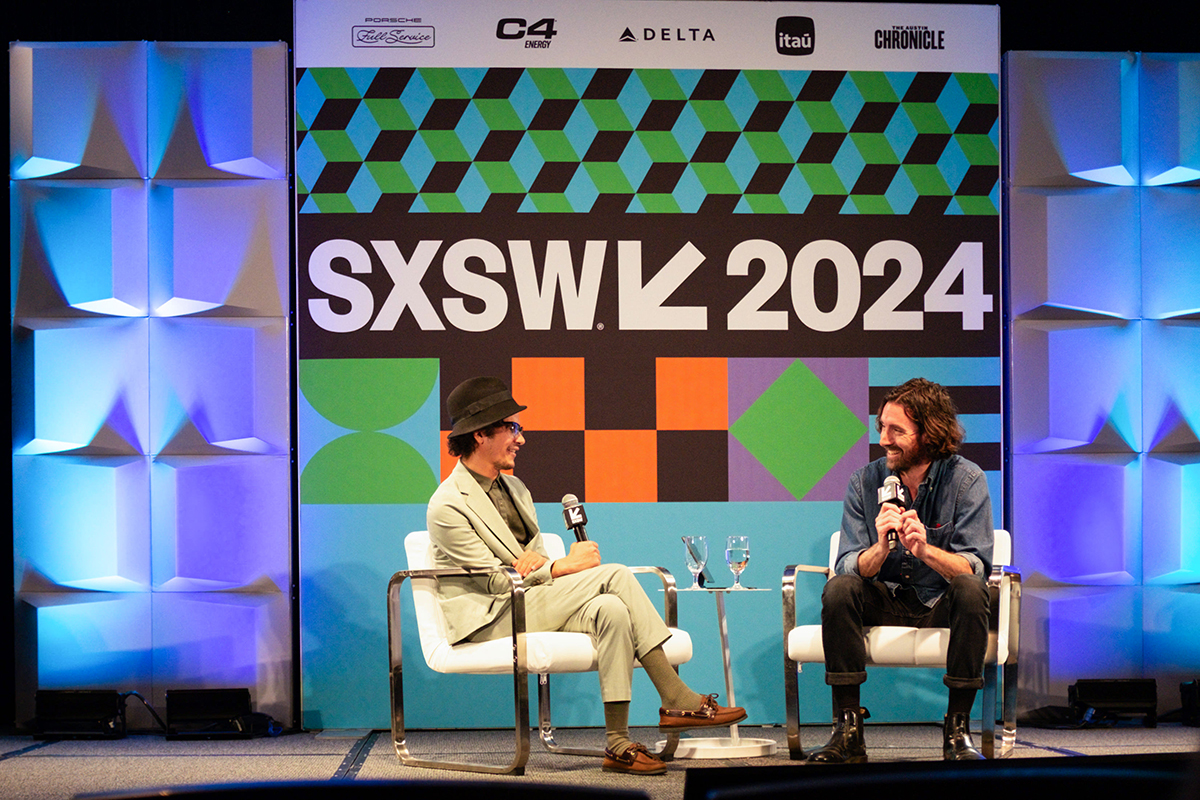Director Nicolas Jack Davies was in Austin about two years ago after interviewing Omar Rodríguez-López and Cedric Bixler-Zavala for the documentary, Omar and Cedric: If This Ever Gets Weird. As he walked around, he kept thinking “Wouldn’t it be great if the film launched at SXSW?” Through that manifestation, the documentary had its US premiere at SXSW Film Festival earlier this month, giving the audience a raw and intimate look behind these childhood best friends who are most known for their bands, At the Drive-In and The Mars Volta.
The film’s title was inspired by words Rodríguez-López said to Bixler-Zavala almost 25 years ago: “If this ever gets weird, promise me we can just stop, as nothing is more important than loving you.” That sentiment has been an underlying theme for their friendship of over 40 years bookmarked by their music projects. Omar and Cedric: If This Ever Gets Weird tells their story through footage mostly shot by Rodríguez-López, who has been filming his life since he was eight years old.

Davies had the incredible challenge of sorting through 40 years of footage, which he did by “throwing darts” and randomly clicking on video files. While it seems like a music documentary on the surface, the film is really a story of friendship.
“For me, as soon as I spent time with them and got to know them, it’s like this is a love story,” Davies said at the SXSW premiere. “I think it’s about how difficult it is to stay together in life with anybody… and the ups and downs you go through.”
And boy, does the documentary reveal all the ups and downs. The film shows the recording of At the Drive-In’s third record, “Relationship of Command,” which pushed them into the mainstream during the height of nu-metal in the early 2000s. It led the band to get a record deal and perform on Late Show with David Letterman, but the guys are very candid about how they felt about the hype, revealing that what may look like success to us isn’t always the complete picture.
After At the Drive-In disbanded, Rodríguez-López and Bixler-Zavala went on to form other acts, including The Mars Volta, which was an honor to their roots and the dead. The film explores Bixler-Zavala joining the Church of Scientology and The Mars Volta’s eventual breakup, which Bixler-Zavala announced on Twitter. There’s a fair amount of drama dispersed within the two-hour film, including the death of some friends and family, band reunions, and everything in between. To obtain this type of access, Davies first had to gain Rodríguez-López and Bixler-Zavala’s confidence.

“I’m very grateful for the trust they put in me to make this,” Davies said. “It’s been a long journey, but I thank (Rodríguez-López and Bixler-Zavala) very much for your kindness and your candor. It’s been an honor of my working life to make this film.”
Rodríguez-López shared at a SXSW panel that he had talked to other directors, but he “didn’t like them.” What drew him to Davies was that the director revealed his human mind rather than going straight to business. In fact, Davies never shared the pitch deck with his subjects.
The musicians knew that the success of this project would rely on who they trusted to handle the film. “The footage, as intimate as it might be, it’s an inanimate object,” Rodríguez-López said. “It’s your mind that then shapes that into something and tells some sort of story. And in somebody else’s hands, it could have been really [dead].”
Instead, Omar and Cedric: If This Ever Gets Weird is very much alive. In fact, it’s an unrestrained, personal account of two musicians’ lifelong friendship.

